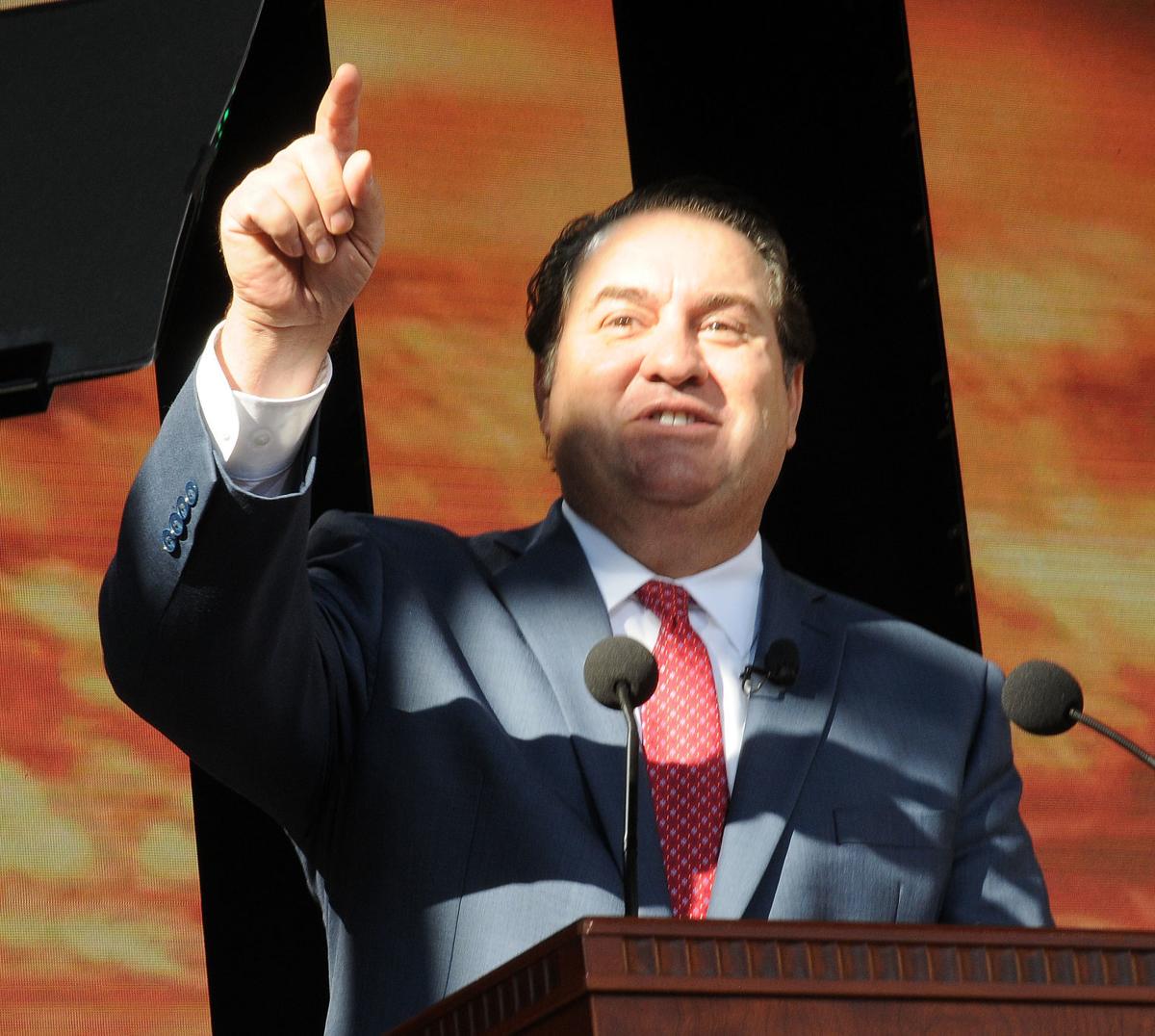PHOENIX — Attorney General Mark Brnovich is asking the U.S. Supreme Court to stop the family that owns a major opioid manufacturer from "looting'' company assets.
In a new filing this morning, Brnovich contends that Purdue Pharma has transferred more than $4 billion to members of the Sackler family between 2008 and 2016. That does not include millions of dollars in transfers to other companies controlled by family members, including overseas firms.
What makes all this relevant — and, from Brnovich's perspective, appropriate for Supreme Court action — is the company currently is facing multiple lawsuits, including several here in Arizona, accusing the firm of improperly promoting its OxyContin brand and helping cause the opioid crisis.
Brnovich wants the justices to not only stop the transfers but attempt to get back from family members what has been taken.
He specifically is looking to preserve funds for a case pending in Pima County Superior Court which contends that Purdue violated the terms of a 2007 consent judgment which prohibited the promotion and marketing of its oxycodone painkillers in deceptive ways. That case is set for trial in 2021.
Brnovich, in his arguments to the justices, said the company has been knowingly engaged in an "aggressive marketing campaign'' for OxyContin. In fact, he said, company president Richard Sackler "crassly boasted that 'the launch of OxyContin tablets will be followed by a blizzard of prescriptions that will bury the competition.'''
But he said that the rise in Purdue's profits were mirrored by an increase in opioid addiction, overdoses and deaths, with a 400 percent increase between 1999 and 2006.
All that led to $600 million in fines from the federal government and that 2007 consent judgment in which Purdue paid $19.5 million which was distributed to Arizona and 25 other states.
"Despite all of the fines, settlements, judgments and promises, Purdue — with the knowledge and approval of the Sacklers — continued to market its opioids illegally through a marketing campaign that was designed to aggressively increase sales,'' Brnovich wrote.
It has the desired result, he said: By 2009 Purdue was making more than $2 billion each year from OxyContin sales alone, with cumulative earnings of more than $31 billion by 2016.
At the same time, though, Brnovich said opioid-related deaths in Arizona rose 76 percent since 2013, with 928 in just 2017 alone. And he said the state health department estimates that between June 2017 and this past June more than 3,000 Arizonans died from opioid overdose.
All that, he said, is relevant to the case pending in Pima County and the state's desire to recover damages under its Consumer Fraud Act accusing the company of misleading marketing of OxyContin.
Brnovich said, though, that after the settlements Richard Sackler wrote a memo exploring options that could protect the family from the "dangerous concentration of risk'' it faced. All that, he said, is related to the transfer of company assets to the family.
"Not surprisingly, Purdue recently announced that it is contemplating bankruptcy,'' Brnovich told the justices.
"The issue before this court is Purdue's capacity to satisfy liquidated and contingent liabilities that are the result of its illegal practices,'' he said.
Brnovich acknowledged that going directly to the Supreme Court is an unusual move. But he argued that the U.S. Constitution specifically grants the court the power to adjudicate disputes between residents of different states, which is the case here.
And the attorney general said having the high court itself take up the issue, versus being shunted off to a lower federal court, would fulfill its responsibility to "resolve nationally important issues,'' estimating that the nationwide opioid epidemic is an "unprecedented'' public health crisis.
"The human toll is unimaginable,'' Brnovich said, with estimates that the abuse has cost more than a trillion dollars in health care, social services and criminal justice.
"Nearly every state (including Arizona), thousands of municipalities and others who have been harmed have sued Purdue to recover damages caused by the company's illegal marketing practices,'' Brnovich wrote. "Yet because of the Sackers' campaign to drain Purdue of its assets, these victims now face the prospect of recovering a fraction of what they are owed.''
And that, said Brnovich, is where the Supreme Court fits in.
"It is urgent that those responsible for the opioids crisis be held accountable, that their victims be able to recover for the harm that has been inflicted on them, and that the Sackler's looting of purdue be remedies,'' he wrote. "Only this court can resolve this pressing national issue in a uniform and timely manner.''





